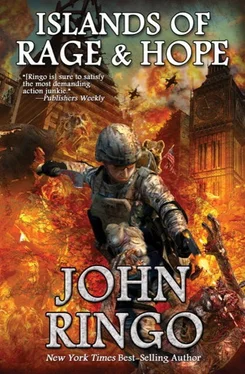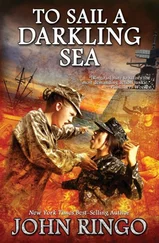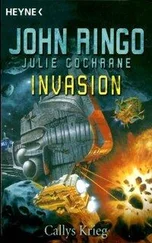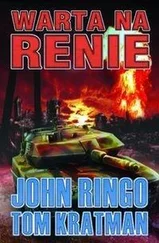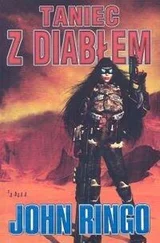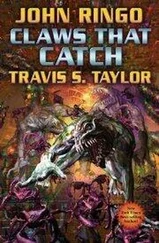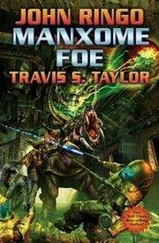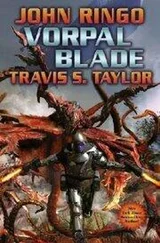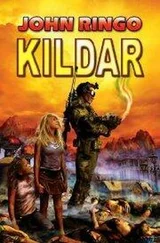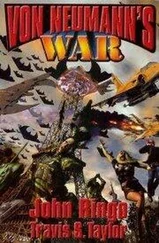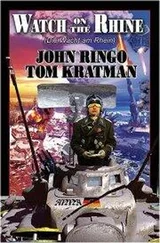“His Royal Highness brought up some points in our first meeting I thought you should be aware of, sir,” Hamilton said.
“Which are?” Steve asked.
The colonel gave a quick precis of the discussion before asking, “Not do you approve the notional plan or disapprove, sir,” Hamilton said. “I’m wondering what you think?”
“With some rather critical bits left out, you just covered Plan Sisyphus,” Steve said, leaning back.
“The Greek legend of the man who was condemned to roll a ball up a mountain, sir?” Hamilton said.
“The same,” Steve said. “Details you left out, not to mention getting ahead of yourself. Take about ten barges, lash them together. Cover in steel plates. Stick some containers onboard with housing and support. Anchor in the water source of the major city. You now have a helo-port that infected cannot access. Use a liner if you have one available as discussed to house the refugees. Otherwise find some land facility with strong defenses, such as the Tower of London, to do so. I’d suggest using the Tower until you have a liner cleared. But that is the simplest synopsis of Plan Sisyphus.”
“That won’t clear all the cities in the world, sir,” Hamilton said.
“Ninety percent of the major cities in the world are on a navigable waterway, Colonel,” Steve said. “Some of them will be difficult to get to, but they’re mostly on water. It’s practically a requirement to be a major city.
“With enough helos or time, you should be able to rescue ninety percent of the survivors in a major city. Which in the case of, say, London, will require more than one liner. To do it, you’ll need some trained personnel. Since you’re not focusing on boat crews, as we were at sea, you’ll need a core of trained personnel to train the willing. Which is why I need the sub crews.
“No disrespect to people like Staff Sergeant Januscheitis, but what takes six weeks to learn for your average aviation mechanic is a week’s class for a nuclear machinist’s mate. They’re simply a different breed of cat. They can absorb the information at phenomenal rates. Their primary purpose won’t even be wrench turners. Their primary purpose will be ensuring that newly minted helicopter mechanics are doing the job right . There’s not enough sub crews in the world to maintain all the helicopters we’re going to need. And we need them for other tasks.
“You’ll also need more helos and more helo pilots. And a better, more mobile, platform would be useful. I said—Jesus, it seems like years ago but it was in my first serious discussion with the Hole—that I’m going to need the Iwo Jima and lots of helicopters. Now you know why. Questions?”
“Am I the only person you’ve discussed this with, sir?” Hamilton asked curiously.
“You, my wife and Mr. Walker,” Steve said. “He was the one who suggested the helo barge. I was still at your plan or using the deck of a ship. He also extensively critiqued my written version. I’m starting to lose patience with ‘just leave him alone.’ I need his brains and experience, whoever he is or was. Whatever he is or was. Anything else?”
“Should I authorize the mission?” Hamilton asked. “Getting ahead of myself, sir.”
“As long as the primary one succeeds,” Steve said. “With the caveat that until we’ve built up the right force structure, the prince is going to be more or less on his own. All we’ll be able to supply is some parts, not as many as he’ll need, and some ammo. Starting an area and then having it bootstrap itself is part of the plan. Wolf Squadron, the U.S. Navy, the entire pre-Plague U.S. military were it still extant, cannot make a dent in clearing the world. Every nation will have to bootstrap itself. All we can do is give them the seeds. But we still need the sub crews to have any chance of even that succeeding. So we are back to the primary mission. What are your thoughts?”
“If they can access and close the doors,” Hamilton said, “I think they’ll be able to clear the building, sir. If they cannot…Abort. We also don’t know if the materials are available.”
“Positive thinking has long been shown to have an effect far beyond the strictly rational,” Steve said. “Some quantum physicists argue that sufficiently large belief can move a sufficiently small mountain. In other words: Don’t take counsel of your fears. You will succeed. We always do. After which we get a more impossible mission,” he added with a grin. “Wolf out.”
In the beauty of the lilies Christ was born across the sea,
With a glory in His bosom that transfigures you and me:
As He died to make men holy, let us die to make men free,
While God is marching on.
(chorus)
—“The Battle Hymn of the Republic”
“Think you have enough weapons, Lieutenant?” Hamilton asked, looking at Faith’s rig-out.
Faith was rigged up the way she’d been since the Voyage Under Stars , now with more ammo. She had three pistols, twenty magazines for those, Saiga, forty magazines stuck absolutely everywhere , grenades in pouches, kukri, trench knife, half a dozen other knives tucked in various places including hanging off of magazines, Halligan tool and machete strapped to her assault ruck, and Trixie staring out of the back of the ruck.
“This is going to take some serious clearance, sir,” Faith said, squirting some CLP into the action of her Saiga and cycling it. Then she tucked Trixie into the ruck all the way and zipped the top. “I’m pretty sure this is going to be all hands. If I bring any of the ammo back you can take it out of my pay, sir.”
“Oorah,” Hamilton said. “The real question is can you handle the fast rope with that much weight?”
“Just watch me, sir,” Faith said, tapping the helmet cam she was wearing. Due to the questions about what, exactly, they were supposed to be looking for and where it might be, all of the Marine “leadership” down to team leaders were wearing helmet cams.
“I shall be,” Hamilton promised. “Let the grunts take the lead, Lieutenant. That is their job.”
“There’s a time to lead from the back and a time to lead from the front, sir,” Faith said. “When I need to lead from the front, sir, I am going to lead from the front, sir. With all due respect, sir.”
“Understood,” Hamilton said. “But you can’t lead from either position if you’re dead.”
“Zombies don’t bother me, sir,” Faith said, dimpling cutely. “They’re insane, hungry, angry animals. They won’t kill me from professional courtesy, sir.”
“Mr. Walker,” Sophia said uncomfortably, as the “civilian” walked out of Grace in full clearance rig. Somewhere, he’d found a complete set of Army combat gear. Instead of bunker gear he was wearing Army camouflage rain gear, Army kevlar helmet and body armor. He had at least as many weapons and as much ammo as Faith. And an H&K 416 instead of M4. “I don’t remember including you on the mission plan.”
“Ensign?” Walker said. “You know that at some level I outrank you, right? And you need the help. Both in looking for the materials and as a shooter. You’re not questioning my abilities as a shooter are you, Ensign?”
“No, I’m not,” Sophia said. “I’m questioning your age… sir.”
“I think I’ve got one last battle in me, Ensign,” Walker said, grinning. “Ever heard the line that ‘a general should die with the last bullet of the last war’?”
“No…sir?” Sophia said.
“Remember it. It is appropriate to the situation.”
“This is a big one!” Faith boomed as the chopper cycled up. “As always, when possible, let the zombies come into your fire zone, don’t sneak into theirs. But do not allow that to stop you moving forward. WE NEED TO SECURE THIS BUILDING. Hit them! Hit them hard! Keep hitting them! MARINES ARE THE FINEST SHOCK TROOPS ON EARTH AND TODAY YOU GET TO PROVE IT! The Marine battle cry ‘Oorah’ dates all the way back to when we took the fortress of the Bey of Tripoli. ‘Urah’ is Turkish for ‘ Blood! ’ And if you don’t want to drink the blood of the infected, Marines, THEN YOU ARE IN THE WRONG UNIT! IT’S SCRUMMIN’ TIME!”
Читать дальше
